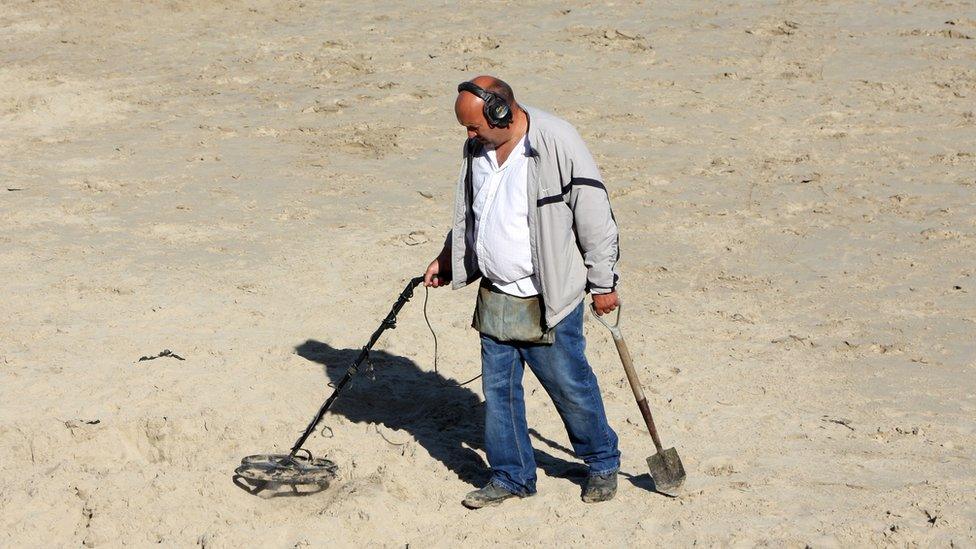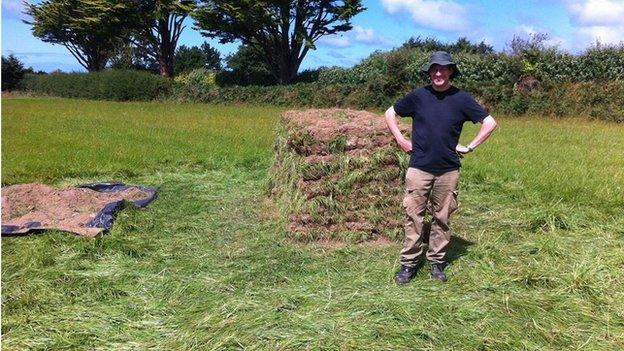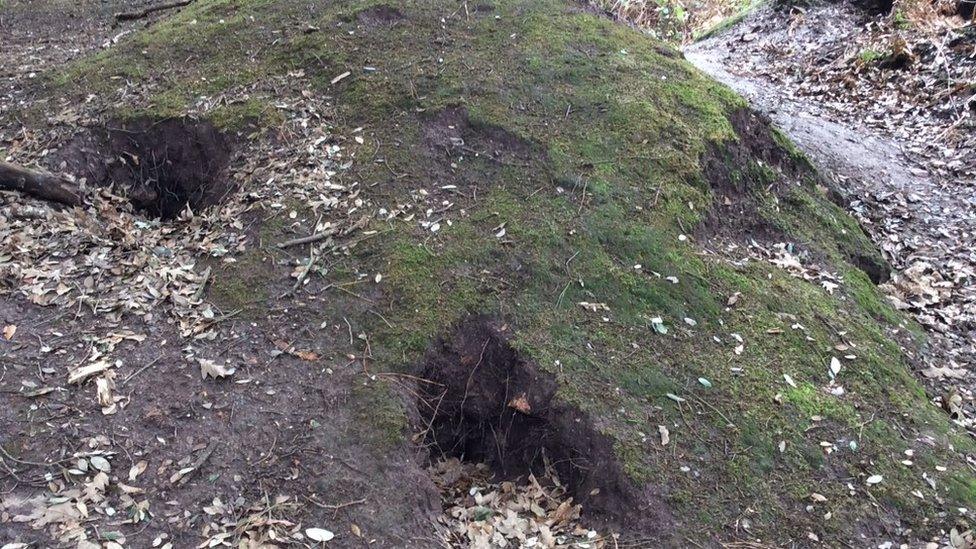Guernsey metal detectorists warned off protected areas
- Published

Metal detectorists need to get the consent of landowners, the States said (generic image)
Metal detectorists in Guernsey are being warned to avoid ecologically and historically sensitive areas.
The States said holes had been found dug on protected land that it owns.
Digging in public spaces can also create trip hazards and could uncover munitions, it said.
The States' Archaeologist Dr Phil de Jersey said it was "disappointing to see these holes dug randomly across the environmentally sensitive landscape".
"Metal-detecting can contribute a great deal to our understanding of the past, when it is done with care and consideration for what might lie beneath the surface," he said.
"For archaeology to work we need to see the context, or the bigger picture.
"We can do that with the assistance of metal-detecting, when it's carefully recorded and done in a way that does not risk causing potential damage."
Metal detectorists are also advised to always ask for landowners' consent to avoid damaging property or vegetation, and for their own safety.
The States said called for anyone wanting to operate on its land to contact Agriculture, Countryside and Land Management Services.
Metal detecting is permitted on most of Guernsey's beaches, but not on the east coast due to its historic significance.
Emily Coule, Environment Services Officer, said: "Some sites are particularly sensitive, and it is important not to damage our natural history in the process of searching for treasure.
"Digging in coastal grasslands can damage rare and threatened floral species that may be found on only a few sites. It can also disturb the seedbank, affecting growth in future years."

Follow BBC Guernsey on Twitter, external and Facebook, external. Send your story ideas to channel.islands@bbc.co.uk, external.
Related topics
- Published19 August 2014

- Published12 March 2019
